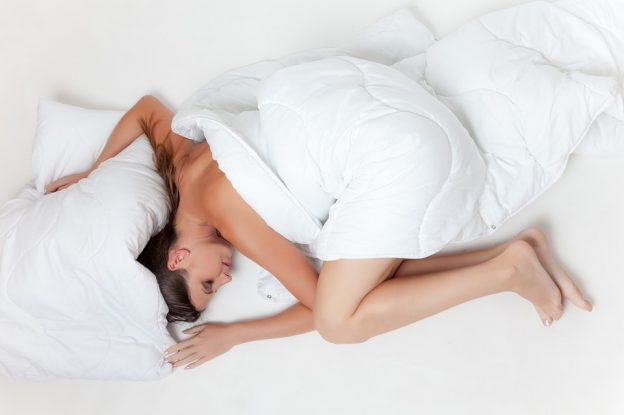Top 7 Common Sleep Disorders and How to Diagnose
Experiencing difficulty with sleeping is a very common condition that people complain about all over the world.
The American Sleep Association (AMA) says that as many as 50 to 70 million adults complain of sleep disorders.
If you are a medical doctor or a sleep technologist, you probably know that when patients come in with sleep problems, a lot of them are dejected, worried, anxious, and some are downright depressed.
It might sound like a simple problem, but in fact, it can be very dangerous [1]. And dangerous to others too! The AMA says that many times, the 1,550 deaths that occur on the American roads have been caused by people who have fallen asleep at the wheel or who were drowsy and not properly focusing on their driving.
What Are 7 Typical and Common Sleep Disorders?
- Insomnia: Insomnia is a sleep disorder characterized by people having difficulty falling asleep or even staying asleep. Here are a few reasons why you develop insomnia –
- Poor sleep hygiene
- Medical conditions
- Sleep-related breathing problems
- Hormonal changes
- Moving of the limbs during sleeping
- Circadian rhythm disorders
Treatment for insomnia
There are many reasons; both medical and lifestyle-related that might be the cause of insomnia. When you suffer from insomnia, maybe non-medical solutions will be prescribed such as hypnosis, cognitive behavior therapy, sleep restriction, relaxation techniques, or stimulus control. Also, lifestyle changes like avoiding alcohol and caffeine might also be advised.
- Obstructive sleep apnea: Obstructive sleep apnea can affect your life – highlighting the importance of sleep. Fortunately, something can be done about it. Even though it’s a common disorder, it’s a serious one. Your airway becomes blocked, and you stop breathing, where you end up choking or snoring loudly. You are depriving your body and brain of oxygen and it can happen many times during the night. This can leave you the next day with headaches, no energy, feeling tired and irritable.
Treatment for obstructive sleep apnea
You might need to make some lifestyle changes like exercising regularly, reducing weight, quitting smoking, using nasal decongestants, not sleeping on your back, and avoiding taking sedative-type medications. Other solutions are surgery, therapies, or using a mouthpiece.
- REM-Sleep Behavior Disorder: When you have REM Sleep Behavior Disorder, you are acting out your dreams while you sleep. This condition can be a danger to you or others around you. Common symptoms of REM Sleep Behavior Disorder are moving your limbs while you sleep. You also could walk, shout, talk, scream and punch, etc., whilst asleep.
Treatment for REM-Sleep Behavior Disorder
The treatment for REM Sleep Behavior Disorder could include safety measures like safeguards and medications. These measures could be putting padded flooring near the bed, removing dangerous stuff around the bedroom like weapons and sharp objects, moving furniture around, and placing barriers on the side of the bed. Medications include Melatonin, which can reduce or eliminate the symptoms. Another one is Clonazepam, a prescription medication. It can produce side effects, so check it out first or discuss it with your doctor.
- Narcolepsy: This is a chronic sleep disorder that causes a person to experience overwhelming daytime drowsiness. The causes of narcolepsy aren’t that well understood. But it causes sudden onsets of an overwhelming need to sleep where the loss of muscle tone and hallucinations can even occur. You might even fall asleep uncontrollably while eating for instance. The symptoms are falling asleep without warning, feeling drowsy during the day, suffering from sleep paralysis, insomnia, etc.
Treatment for Narcolepsy
Stimulants, antidepressants, and other medications can help. This condition can’t be cured though and can last for years on end. Drugs will be used that stimulate the central nervous system to keep you awake during the day. Medicine used is Modafinil or Armodafinil.
- Restless Legs Syndrome (RLS): This disorder is the urge or desire to move your legs while you are resting or sleeping. You might even feel nasty aches in the legs as well as tingling or burning. You might have the feeling that something is crawling around in your calves. You might have RLS if you feel the strong urge to move your legs, or feel the above sensations which get worse at night.
Treatment for RLS:
People often get relief from stretching, moving, or walking. There are some good treatments for RLS. Read about them here. There are medications, and lifestyle changes such as sleeping healthily, taking necessary vitamin and iron supplements, exercising, doing stretching exercises or yoga, massage therapy, and using prescription medications. Restiffic foot wraps are also known to relieve RSL symptoms.
- Circadian Rhythm Sleep Disorder: This is when you have a disruption in your circadian rhythm – that’s the name given to your “internal body clock”. It is this internal body clock that regulates the 24-hour cycle of biological processes in animals, plants, and humans.
Treatment for Circadian rhythm Sleep Disorder
Melatonin, as described above, is a recommended medication for treating Circadian Rhythm Sleep Disorder. Then there are also stay-awake agents like Modafinil or caffeine. Short-term sleep aids can be used to maintain the keeping-awake cycle to the desired effect.
- Periodic Limb Movement Disorder is a sleep disorder where whilst a person is sleeping, their limbs move at the same time. It can be primary or secondary. Secondary Periodic Limb Movement Disorder is caused by a medical problem that can be underlying, whereas primary PLMD has no known cause. There have been links to abnormalities in nerve regulation that travels from the brain to the limbs. But the real cause is not known.
Treatment for Periodic Limb Movement Disorder
Unfortunately, therapy doesn’t cure PLMD, but it certainly can relieve the symptoms. Many of the medications mentioned above for the treatment of restless leg syndrome can be used to treat PLMD. Then there are also Benzodiazepines, which can suppress muscle contractions because they are sedatives and help you sleep even while there are movements of the limbs.
Top Sleep Aid Supplements for Sleeping Disorders
Olly Sleep: These are melatonin gummies (see Olly Sleep reviews) and they also have L-Theanine, passionflowers, lemon balm, and chamomile. Don’t take more than you should because they can be pretty delicious! They are intended to calm your mind and promote restful relaxation.
The GeniusSleep AID has Melatonin along with L-Glycine, L-Theanine, Inositol, and Rutaecarpine. These provide you with adrenal support and help combat stress and anxiety.
Driftoff: Driftoff has Melatonin with Valerian, L-Tryptophan, GABA, Passionflowers, Chamomile, Lemon balm, and hops. All of them help in easing restlessness, giving you calmness over anxiety, and helping you wake up feeling refreshed.
What Is Melatonin That Appears in Many Sleeps Disorder Products?
Melatonin: The body produces melatonin naturally. There are many reasons why your body makes less than what is required for you to get a good night’s rest. Getting older, traveling across different time zones, what you eat, daily schedule changes – all of these impacts the body’s internal clock. It’s these things that usually impair the body’s melatonin production. Research [2] shows that melatonin supplements can be very effective in reducing the amount of time it takes for you to fall asleep as well as helping you recover quicker from jet lag.
Conclusion
Sleeping disorders, some of which we have mentioned above, often impact our ability to get restful, good quality sleep. Yes, we all do occasionally experience difficulties sleeping and often the reasons behind this are stress, illness, travel, or temporary interruptions in our normal life and routines. Sleeping disorders are when you regularly have problems with getting to sleep at night where you wake up the next day exhausted and can’t even concentrate on your activities during the day.
Don’t ignore sleeping disorders if you feel you might be suffering from one, because they can interfere with and take a serious toll on your physical and mental health. If you ignore sleeping problems, you could notice weight gain, jeopardize your safety while driving, not be able to do your job properly, suffer from memory loss and experience strained relationships, to name a few. Don’t ignore it, because sleep isn’t a luxury, it’s a necessity and plays an integral part of your life. [3].
Sleep – because your life depends on it
Author: Brian Clark
Best Sleep Positions That Will Fight Morning Pain and Stiffness
References
[1] https://www.nhlbi.nih.gov/health-topics/sleep-deprivation-and-deficiency
[2] https://pubmed.ncbi.nlm.nih.gov/25380732/
[3] https://www.ncbi.nlm.nih.gov/pmc/articles/PMC5015038/















